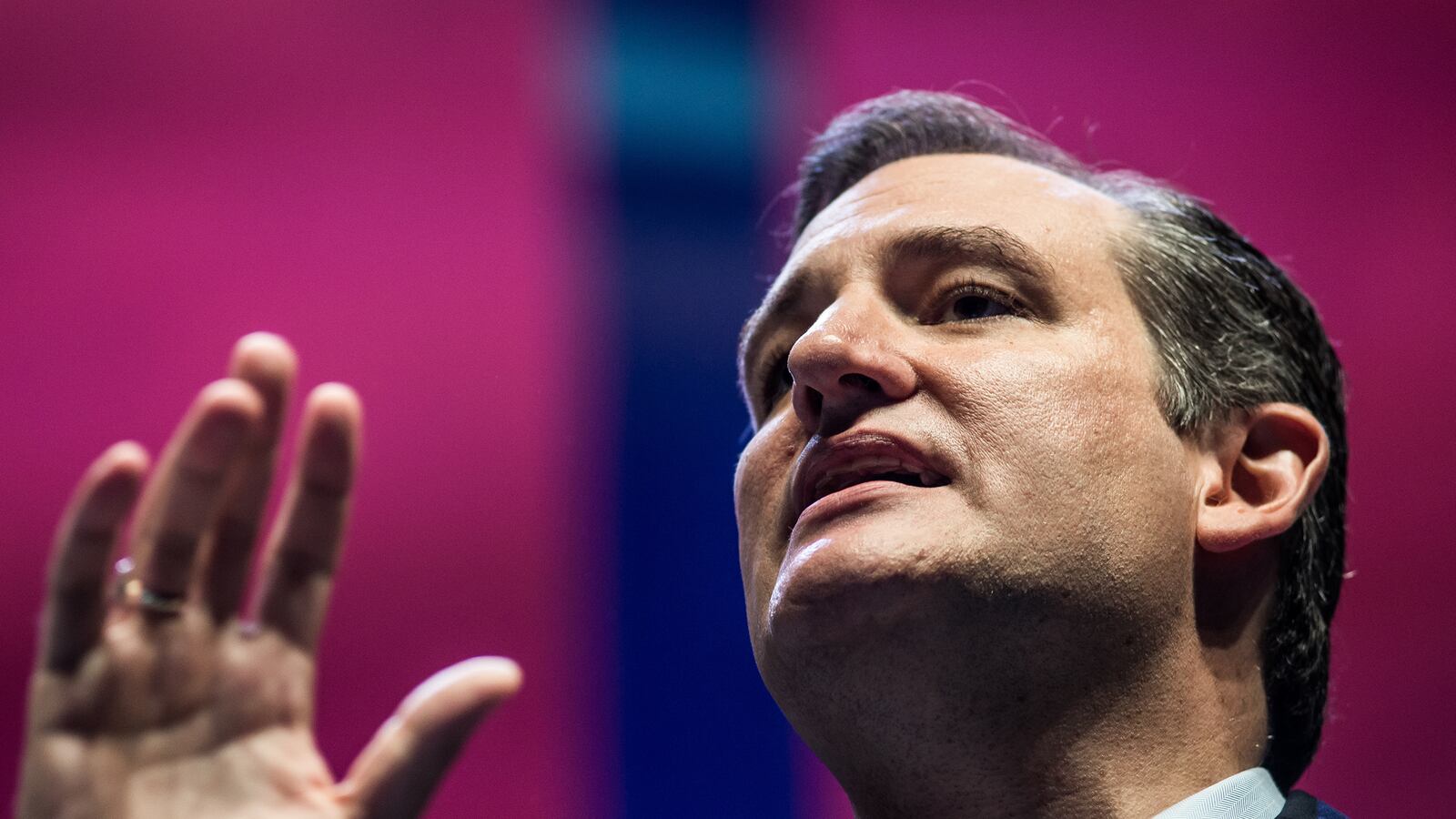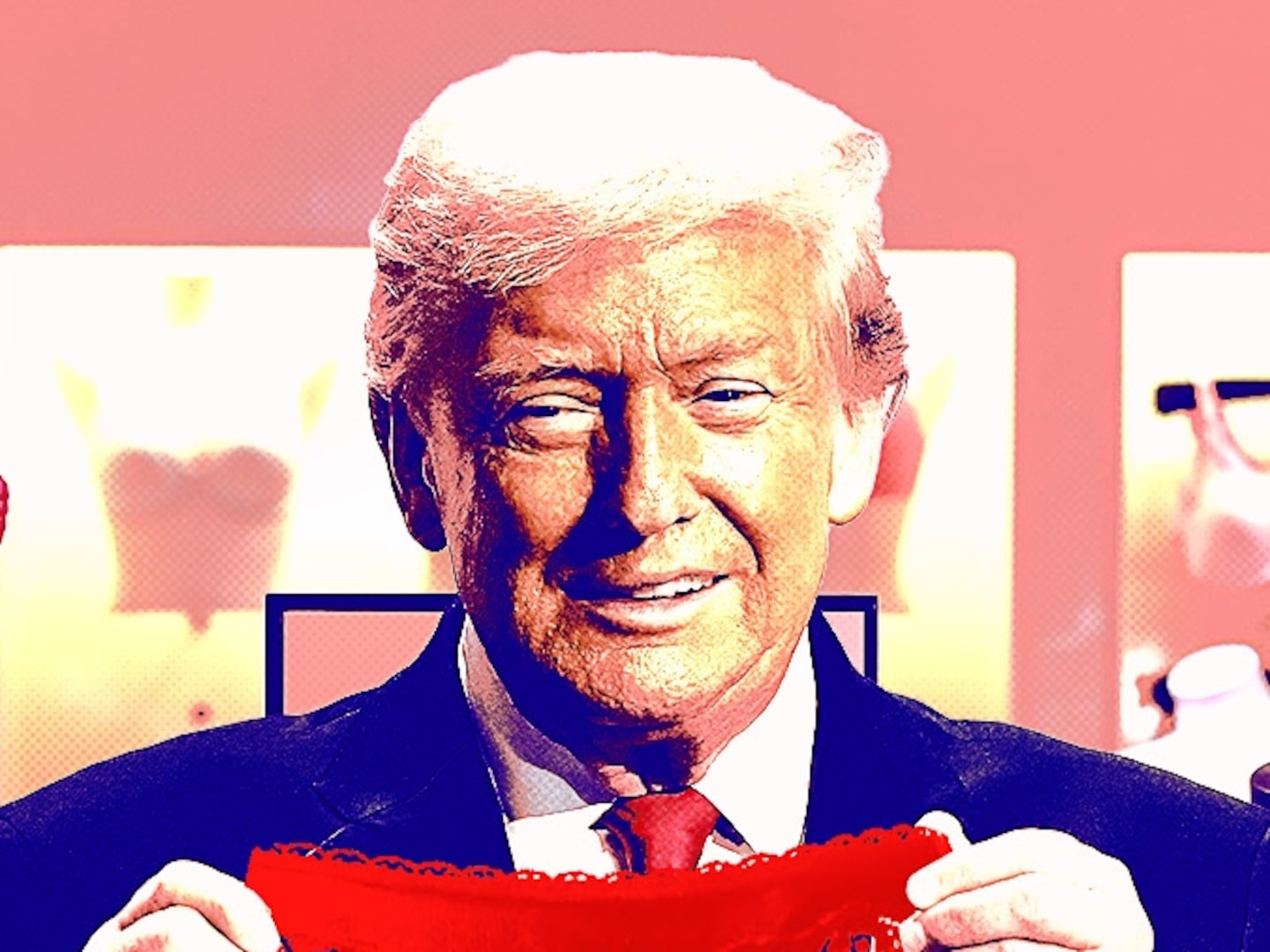One of the conservative movement’s most influential outside groups is swooning over Sen. Ted Cruz.
The Texas presidential candidate—coming off a stand-out performance in the most recent Republican primary debate—just won a bracing assessment from Heritage Action, the activist wing of the conservative Heritage Foundation.
On Monday, the group released its Presidential Platform Review, analyzing policy stances of the top Republican contenders .
The paper dinged Donald Trump for not being as politically incorrect as he says, writing that the mogul’s background “suggests a reluctance to engage in debates over protecting civil society from the imposition of left-wing values.” And it criticized Ben Carson for failing to provide “evidence he will tackle corporate welfare,” as well as expressing “openness to amnesty.”
The paper had kind words for Sen. Marco Rubio, though, praising his tax plan as “very pro-growth” on the whole. And it also had good things to say about Gov. Bobby Jindal.
But no one measured up to Cruz, who seemed to get the most love by far. The Texas Republican won praise for being “willing to pay a political price for taking on government favoritism” as well as his efforts to “eliminate government-imposed barriers to opportunity.”
In many ways, Cruz and Heritage Action have risen through ranks together, often joining forces to push for procedural moves that simultaneously delight Tea Party activists and give Washington party leaders a collective aneurysm.
Over Cruz’s three short years in Washington, he and the Heritage Action team have joined forces on so many issues that some suspect—though always off-the-record—that the group jiggers its scorecard to keep his perfect 100 percent score.
This isn’t even to mention all the times Cruz and Heritage Action leaders literally stood shoulder-to-shoulder. In the leadup to the 2013 effort to eliminate funding for the Affordable Care Act, Cruz teamed with the group for town halls designed to gin up support for their push. At the group’s Dallas event, he sparred with hecklers and drew adoring praise from the crowd.
That effort precipitated a government shutdown that left many Republicans shellshocked.
“They hurt the conservative movement, they hurt people’s health care, they hurt the country’s economic situation and they hurt the Republican party,” said Americans for Tax Reform president Grover Norquist at the time, speaking in general of those pushing that strategy. “And a lot of congressmen and senators are not going to win because we spent three months chasing our own tail—or at least, parts of the conservative movement spent three months chasing their own tail.”
Heritage Action and Cruz held that if Republicans had just been a unified front, voters would have put enough pressure on the president that he would be forced to defund his signature domestic policy accomplishment. It’s a theory. But we’ll never know!
Cruz wasn’t always establishment kryptonite. After all, he got started in electoral politics as a domestic policy adviser for George W. Bush’s 2000 presidential bid.
“One of the reasons I was so eager to help Bush is the way he has described himself, as a compassionate conservative,” he told the Princeton Alumni Weekly. “That’s how I have always conceived of my own political views.”
When Cruz ran for Texas attorney general in 2009—he dropped out of that contest before Election Day—he courted George H.W. Bush’s support. That same year, he told The National Review that Republicans who over-trumpeted their conservative bona fides were off-putting.
“One thing Republicans do that I think is disastrous is that many conservatives try and beat their chest and say, we are so terribly conservative—Attila the Hun, he was a squish!” Cruz said.
When he came to the Senate—after vanquishing the establishment choice in Texas, Cruz then leapt into the fray on behalf of the Tea Party, bucking Senate norms and stealing spotlights. The establishment (for the most part) hated it, the base (for the most part) loved it, and the senator used his skill for divisiveness to build grassroots and conservative mega-donor support and, then, launch a very credible presidential bid.
About a month before Cruz got sworn in, a tectonic shift happened in the Senate that would help facilitate his controversial rise: Then-Sen. Jim DeMint, a South Carolina conservative icon, announced that he was leaving the upper chamber and heading down Massachusetts Avenue to the Heritage Foundation, where he would become its new president. DeMint oversaw significant changes in how the powerful think tank related to Capitol Hill, ushering in a new activist era that made Heritage Action a powerful and divisive force.
Before DeMint, the Heritage Foundation was broadly seen as an ivory tower-esque and genteel home for wonky policy debates and ideological discussions. Its scholars won respect from both sides of the aisle, and Republicans of all stripes felt comfortable using its research to undergird their agendas. The foundation didn’t grapple; it simply analyzed.
Cruz and Heritage Action win praise and criticism from the same people. They tend to use similar rhetoric to defend their strategic priorities. And they share a knack for making staid Republican Party leaders want to scratch their eyeballs out. So it won’t surprise you to hear there’s little daylight between the pair.
Cruz has never been coy about his admiration for DeMint. He’s fond of telling this joke (over and over and over, to the chagrin of reporters who listen to his stump speech):
“A lot of kids wear Superman pajamas to bed,” he’ll say (or some variation of that wording, which I quote from WBAL-TV). “Well, Superman wears Chuck Norris pajamas. And Chuck Norris wears Jim DeMint pajamas.”
This might all feel just a teensy bit inside-baseball. But these kind of alliances can have a major impact on how policies get made and on who wins elections. One might joke that Heritage Action wears Ted Cruz pajamas.






